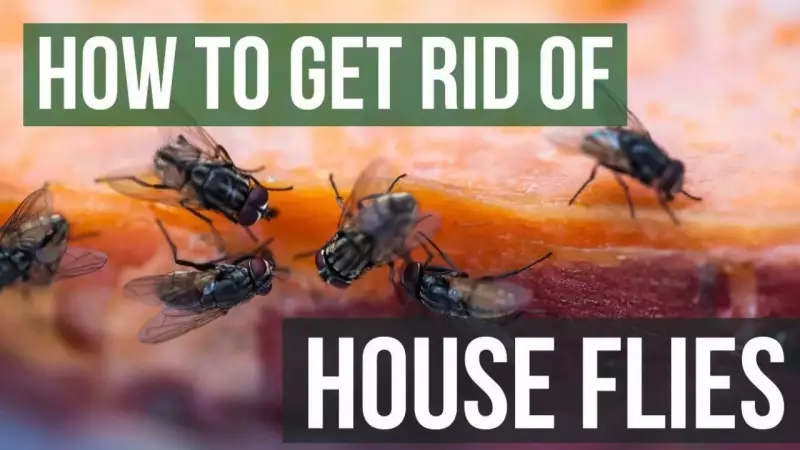
Flies can transform even the most spotless home into an uncomfortable space with their persistent buzzing and tendency to land on food surfaces. While maintaining cleanliness and eliminating attractants remains crucial, one of the most effective long-term strategies involves using natural fragrances that flies instinctively avoid.
Why Scents Work Against Flies
Flies depend heavily on their sense of smell to locate food sources and breeding grounds. Powerful natural fragrances overwhelm their sensitive olfactory systems or mask the odors they typically seek. By strategically placing these scents around key areas like entry points, kitchens, and outdoor seating spaces, you can create an environment that naturally discourages flies from entering or settling.
Six Powerful Fly-Repelling Scents
1. Lavender
While humans find lavender's floral aroma calming, flies find it distinctly unpleasant. The plant's strong essential oils serve as a natural deterrent that works effectively both indoors and outdoors.
Practical applications: Place dried lavender sachets in kitchens, cupboards, and near entryways. Add lavender essential oil to diffusers to distribute the scent throughout rooms. Plant lavender shrubs near doors, windows, and outdoor living areas to create a natural fly barrier.
2. Eucalyptus
Eucalyptus delivers a sharp, medicinal fragrance that effectively masks food smells and naturally repels flies. This makes it particularly useful for bathrooms, kitchens, and damp areas where flies frequently gather.
Practical applications: Combine eucalyptus oil with water in a spray bottle and apply around entry points. Use eucalyptus-scented candles during mealtimes. Hang fresh eucalyptus stems near windows or vents where their natural oils can disperse.
3. Peppermint
The crisp, cooling scent of peppermint effectively disrupts a fly's ability to detect food odors and discourages them from landing on surfaces.
Practical applications: Diffuse peppermint essential oil in high-activity areas like kitchens and dining spaces. Create a natural fly spray by mixing peppermint oil with water and a small amount of dish soap. Maintain potted peppermint plants near doors and windowsills.
4. Cinnamon
Flies find cinnamon's warm, spicy aroma overwhelmingly strong, making it especially effective in enclosed spaces where scents remain concentrated.
Practical applications: Burn cinnamon candles or wax melts to fill your home with fly-repelling fragrance. Position whole cinnamon sticks near windows, trash bins, or food storage areas. Sprinkle ground cinnamon in problem areas while ensuring it remains inaccessible to pets and children.
5. Basil
Basil produces aromatic oils that naturally deter flying insects. As a popular culinary herb, it serves dual purposes when placed in kitchens and outdoor dining areas.
Practical applications: Keep fresh basil plants on kitchen counters, windowsills, and balconies. Gently crush basil leaves to release their oils before placing them in bowls on tables. Use basil essential oil in diffusers or cleaning solutions to enhance its repellent effect.
6. Catnip
While famous for attracting feline friends, catnip contains nepetalactone—a powerful compound that repels numerous insects, including flies.
Practical applications: Dilute catnip essential oil with water and spray around doors, windows, and garbage areas. Plant catnip around outdoor seating spaces or garden perimeters. Position small sachets of dried catnip near entryways to prevent flies from entering.
Additional Effective Scents
For those seeking more options, several other natural fragrances have proven effective against flies: rosemary, lemongrass, cloves, and citronella. These can be incorporated through diffusers, candles, sprays, or potted plants according to personal preference.
Maximizing Effectiveness
To ensure these natural repellents work optimally, apply them consistently and strategically. Focus on entry points like door frames, windowsills, vents, and patio doors. Refresh scents regularly since natural aromas fade over time—replace sachets every few weeks and refresh essential oils daily. Combining multiple methods simultaneously creates a stronger barrier that makes it difficult for flies to penetrate your living spaces.
Since flies rely extensively on their sense of smell, using fragrances they find intolerable represents one of the simplest, most natural approaches to keeping them out of your home. Whether you prefer peppermint's freshness, lavender's floral notes, or basil's herbal aroma, integrating these scents into your environment can significantly reduce fly activity and contribute to a cleaner, more comfortable home atmosphere.





